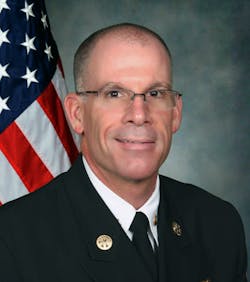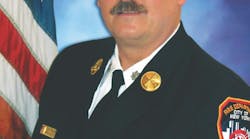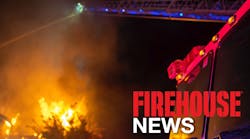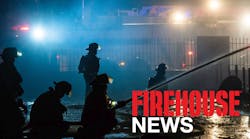As a rookie entering the fire service (career or volunteer), there are a few unwritten rules that seem to permeate our ranks from coast to coast.
One of the obvious rules is that you should never be late when reporting for shift your first day. In fact, depending on which firefighters you speak to, some might suggest that you need to arrive one to two hours before your assigned shift. Others might even suggest that you should never arrive empty-handed, and always bring sweets for the crew—and not the cheap stuff either.
And then there are those subtle reminders that we’ve all shared a time or two with a hint of sarcasm—things like, “You might want to get use to cleaning toilets and mopping floors … you’ll be doing both from this point forward.” Or how about, “The captain likes his coffee strong. I suggest you learn how to make it to his liking and listen more than you talk.”
These and many other unwritten rules and tongue-and-cheek comments are just a sample of some of the longstanding traditions that we as members of the American fire service have accepted as common, everyday behaviors or even as terms of endearment. Like any club, fraternity, sorority or team, these traditions have long served as an informal rite of passage that it seems every rookie faces as they begin their career as a firefighter. But what happens when the simple and harmless traditions are taken to the next level, reaching the point of hazing, bullying and/or physical and psychological abuse?
Take for example, when five volunteer firefighters sexually assaulted a recruit while the girlfriend of one of them videotaped the incident. Or more recently when five career firefighters and a volunteer hazed a rookie firefighter by taping him to a backboard and covering him with condiments, followed by an act of waterboarding, all while being videotaped and shared on social media.
It’s easy to say that hazing of any form should not be tolerated within the fire service, but we all know the reality is very different. I must acknowledge that I’ve led the charge to wet down a recruit class, short-sheeted a fellow crewmember and visqueened a toilet seat a time or two in my career. In hindsight, I admittedly viewed my actions as nothing more than playful fun among a group of willing participants, but was that the case and will that always be the case?
It’s human nature for an individual to want to be liked and to want to be part of the team, but as a company or chief officer, we have a responsibility to separate ourselves and act on behalf of the safety and personal well-being of those we supervise. Having a good time and enjoying the camaraderie of our brothers and sisters is something we all cherish, but let us never forget the responsibility we bear—to serve as the designated adult at ALL times.
I think we can all agree that there are many traditions that collectively create the unparalleled brotherhood and sisterhood that we share in the American fire service. Chewing the fat and playful pranks are just a couple of these traditions, and each of them serve a critical, oftentimes therapeutic, role in forming the trust and respect we have for one another. But firefighters can be natural competitors, so it seems there’s always someone who wants to raise the bar and take it to the next level—a level that some may view as innocent fun while others may view as a breaking point. And it’s the role of the company or chief officer—the designated adult—to recognize the difference and act accordingly.
We’ve long acknowledged that not everyone is capable of serving as a firefighter. Undeniably, it takes a special breed to do what we do. But none of us have the right to demoralize, demean or abuse a fellow firefighter. And as such, the responsibility we bear is that when we see something, we DO something. To turn our heads, to walk away or to simply dismiss abusive behavior of one of our own cannot be tolerated.
Let us not forget that in order for us to effectively serve and protect those outside our ranks, we must first and foremost have the courage and wherewithal to protect those within our ranks.






